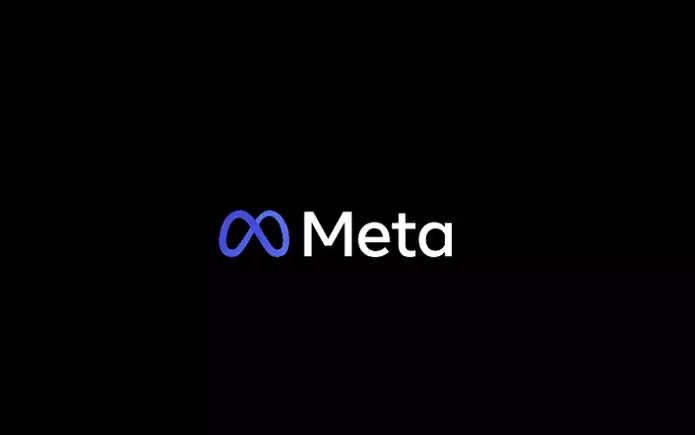In recent years, Meta (formerly Facebook) has sought to distance itself from the political fray, aspiring to create a platform that prioritizes entertainment over divisive discussions. However, the reality is far more complex. The intricacies of political engagement on social media platforms underscore a fundamental truth — it is virtually impossible for Meta to extricate itself entirely from the political sphere. The platform continues to host a plethora of politically charged advertisements, many of which disseminate misinformation, particularly concerning upcoming elections. Reports describing stylized and incendiary ads featuring prominent political figures such as Vice President Kamala Harris illustrate the extent of this issue. Images laden with distortions, AI-generated art, and dramatic content designed to provoke fear often gain traction, drawing users into a whirlwind of misleading narratives.
Despite Meta’s attempts to present a proactive stance against such polarization, the company remains mired in historical controversies around its role in shaping political dialogue. The events of the 2016 U.S. presidential election, wherein Russian operatives leveraged Facebook to foster discord among voters, resulted in significant backlash. This paved the way for Congressional hearings involving Meta CEO Mark Zuckerberg, who faced intense scrutiny regarding the platform’s impact on democracy and information dissemination. The wishful narrative of a politically neutral platform, championed by Meta, seems increasingly at odds with the realities of its operational dynamics.
In the wake of growing criticism, Meta has begun to implement changes aimed at curbing political content more vigorously. No longer does the platform maintain a dedicated news section. Partnerships with news publishers have been terminated, and the company has explicitly stated its intention to pivot toward a more enjoyable user experience. This shift appears notably timed with the upcoming elections, where controlling political discourse can be seen as a preventative measure against misinformation and potential unrest.
Nevertheless, the company grapples with the implications of this strategy. Social media platforms were founded on the ideal of fostering open discourse, and as such, the absence of political engagement may alienate segments of its user base interested in current events and social issues. Meta’s endeavor to cater to user feedback regarding the desire to avoid politically charged discussions is a double-edged sword; while it can lead to a more harmonious online atmosphere, it risks stifling essential conversations.
Further complicating Meta’s strategy is its ambiguous definition of what constitutes political content. According to the company, any content associated with government or elections falls into this category, extending to discussions surrounding laws or social issues. However, this vague framing leaves much room for interpretation. What constitutes a relevant discussion for one user could be seen as political for another, which creates gray areas that amplify confusion and dissatisfaction among users.
Moreover, the consistency of enforcement around these definitions raises questions. What happens when a post that could be perceived as political goes viral? Is it recommended to prevent misinformation, or does it become a matter of popular interest that engages a broader audience? Meta is likely to be scrutinized whether it chooses to clamp down on such posts or allow them to proliferate.
The challenge Meta faces in this political arena is formidable. With over 2.8 billion monthly users, it is virtually impossible for the company to regulate or control the political discourse across its platforms thoroughly. While it can attempt to diminish the significance of political posts in users’ feeds, such efforts will inevitably remain susceptible to failure. The company’s reliance on user-generated content means that political discussions will continue to arise organically, regardless of Meta’s strategic intentions.
The birth of its new platform, Threads, accentuates the dilemma further. Created as a real-time, interactive forum, Threads aims to allow users to engage in immediate discussions. However, as with any social media application, Threads will inevitably witness an influx of political commentary, both constructive and destructive. Balancing the need for open dialogue with the desire to foster a positive user experience is no small feat.
While Meta is committed to reducing political content in an effort to foster a healthier online environment, the complex dynamics of social media suggest that the intersection of politics and platforms like Facebook will remain a significant issue. Users will continue to engage in political discussions irrespective of company policies, forcing Meta to engage in a continuous reevaluation of its approach. The company must strive for clarity and consistency in enforcing its guidelines, recognizing that a nuanced approach to political discourse is crucial for maintaining user trust and platform credibility. The road ahead is beset with challenges, but Meta must navigate it with transparency and adaptability to truly fulfill its commitment to its global audience.


Leave a Reply
You must be logged in to post a comment.